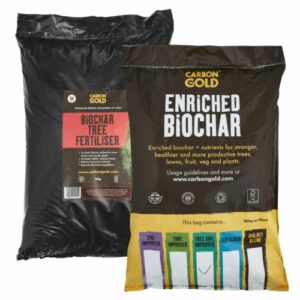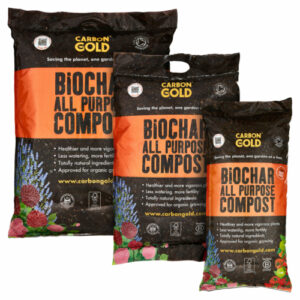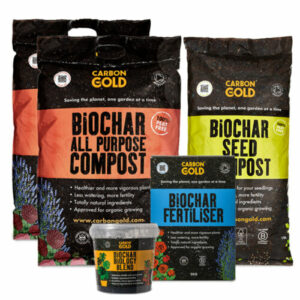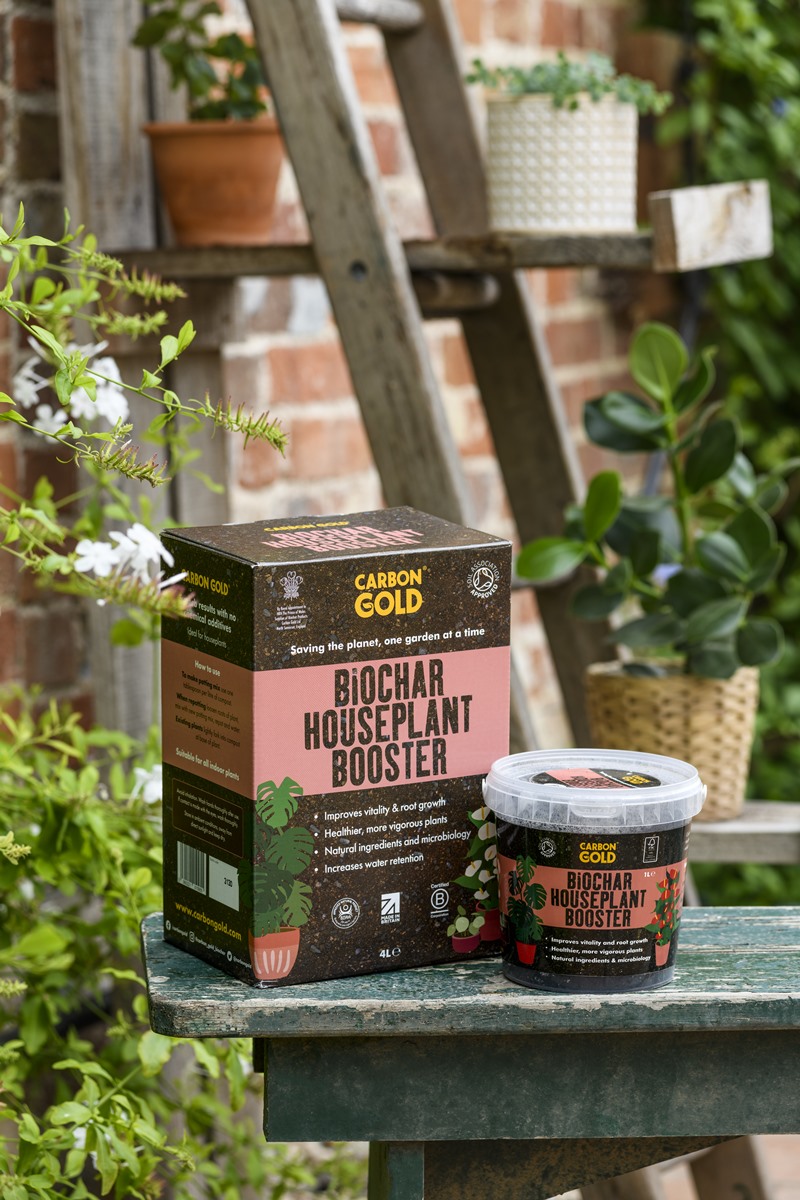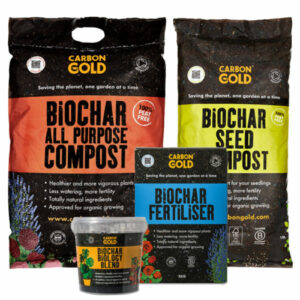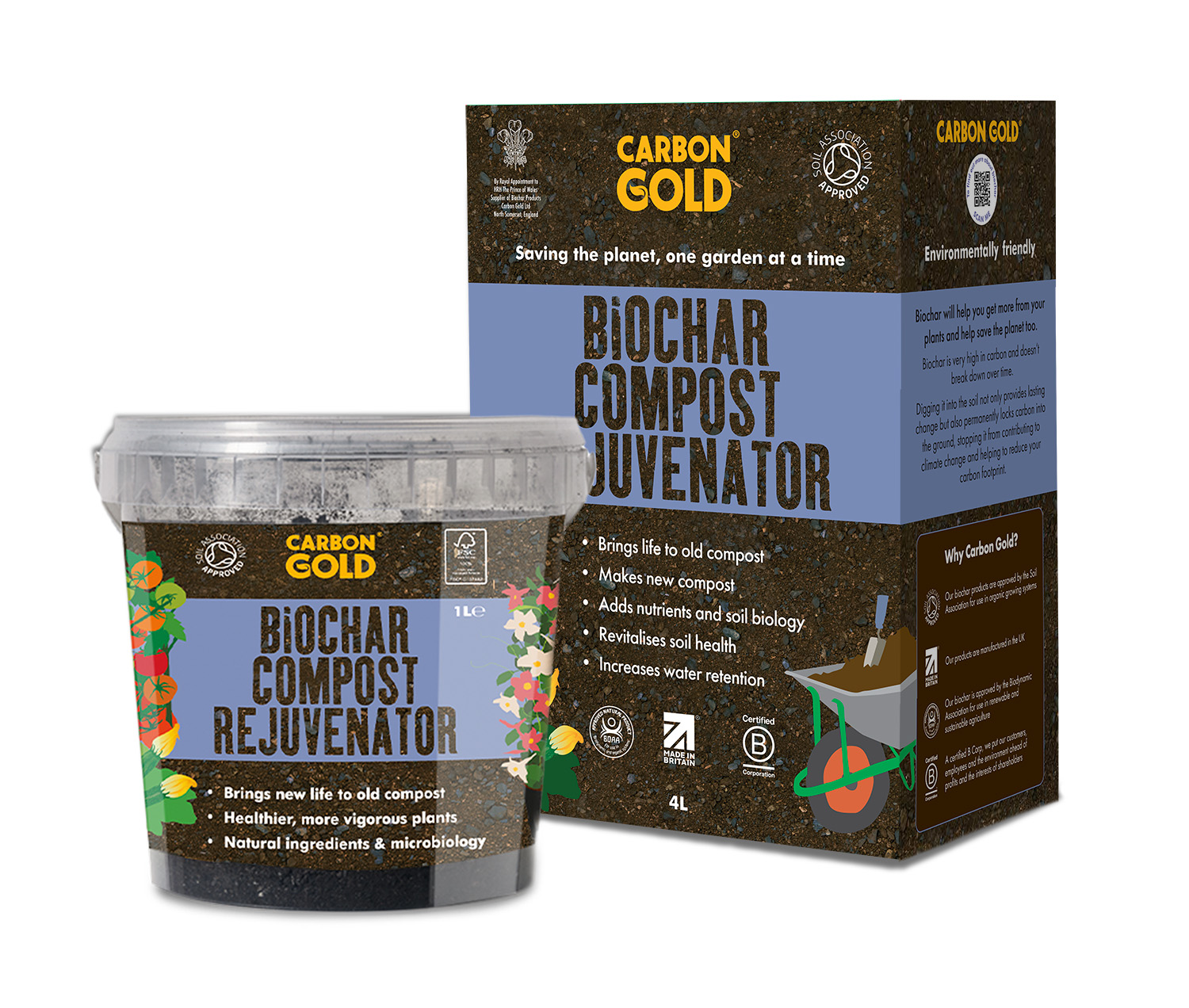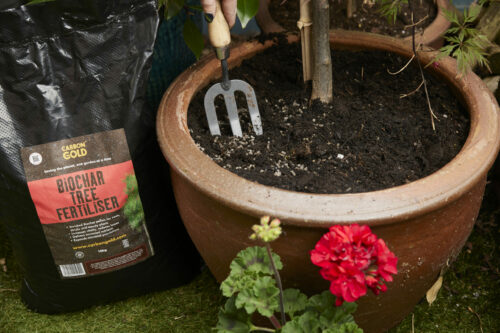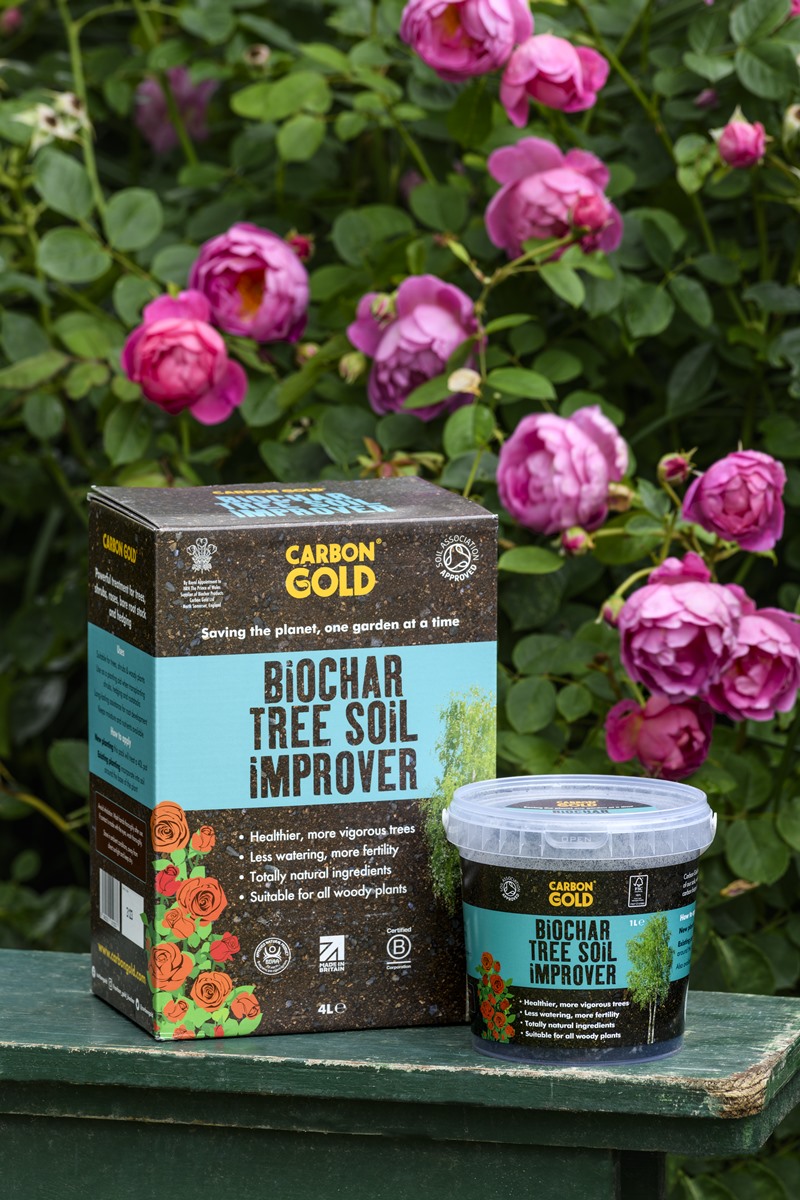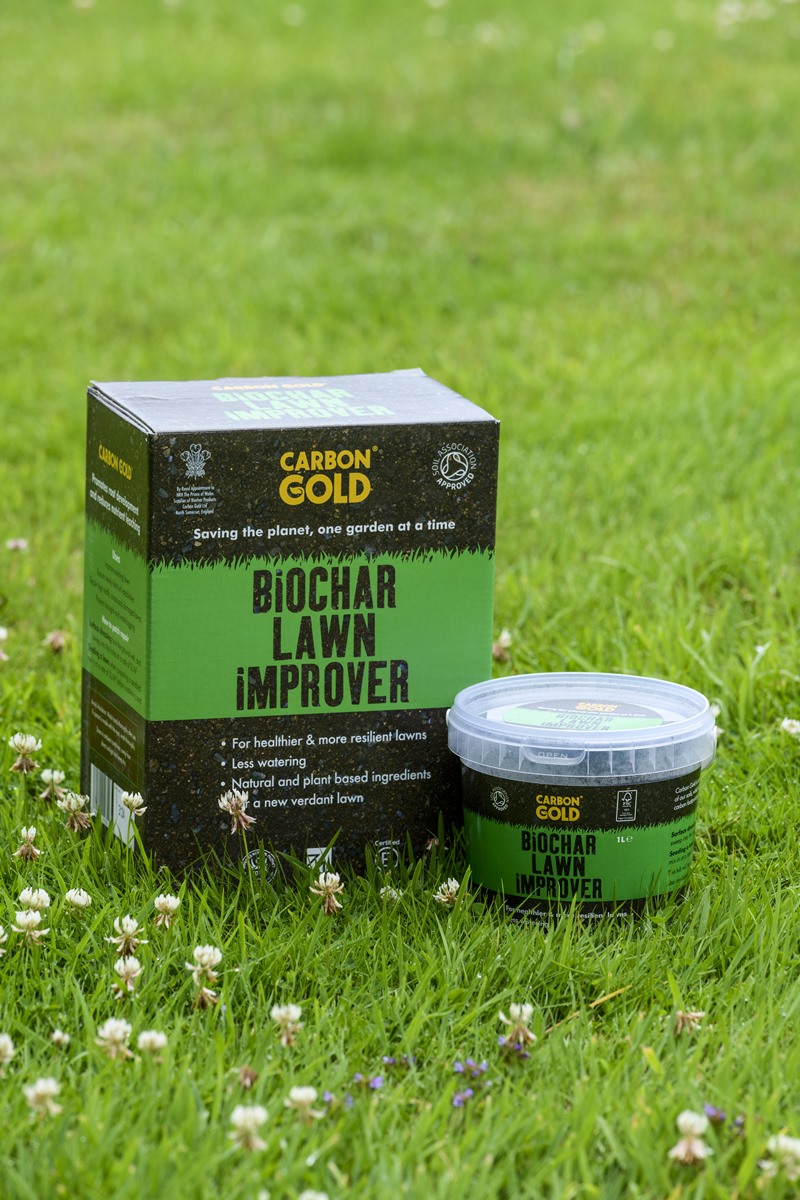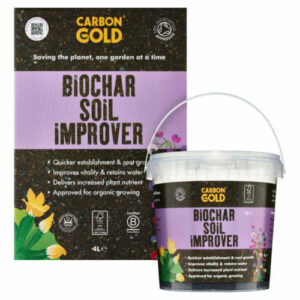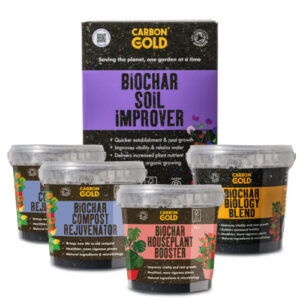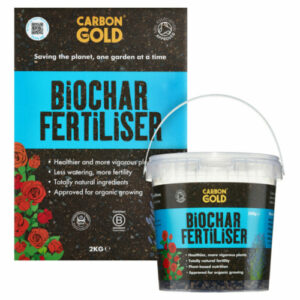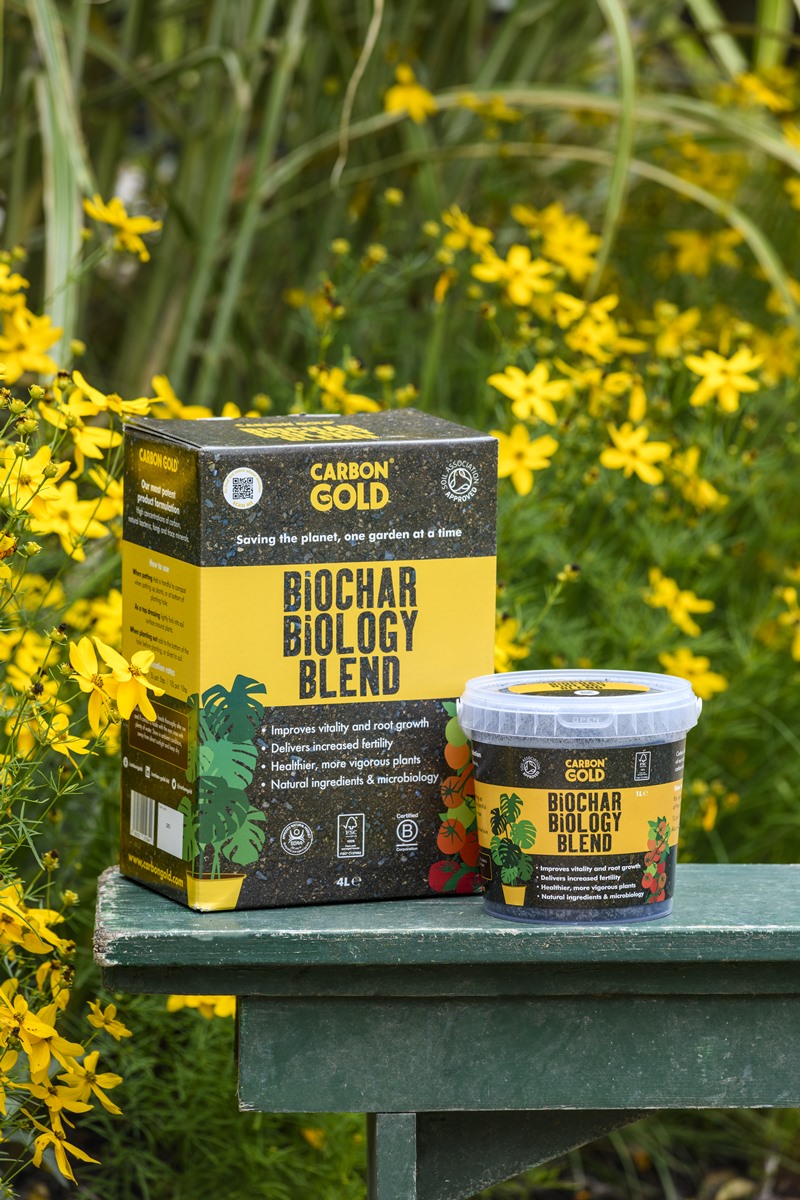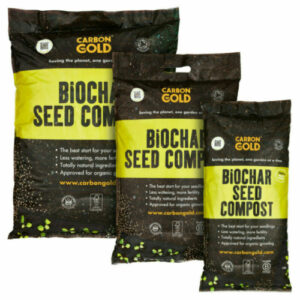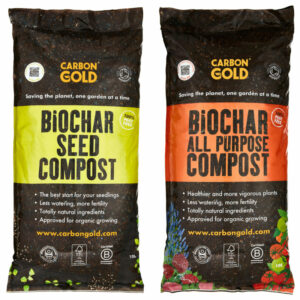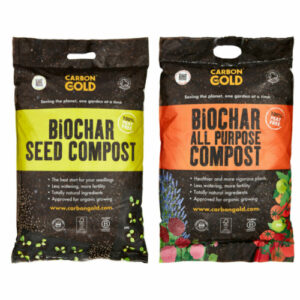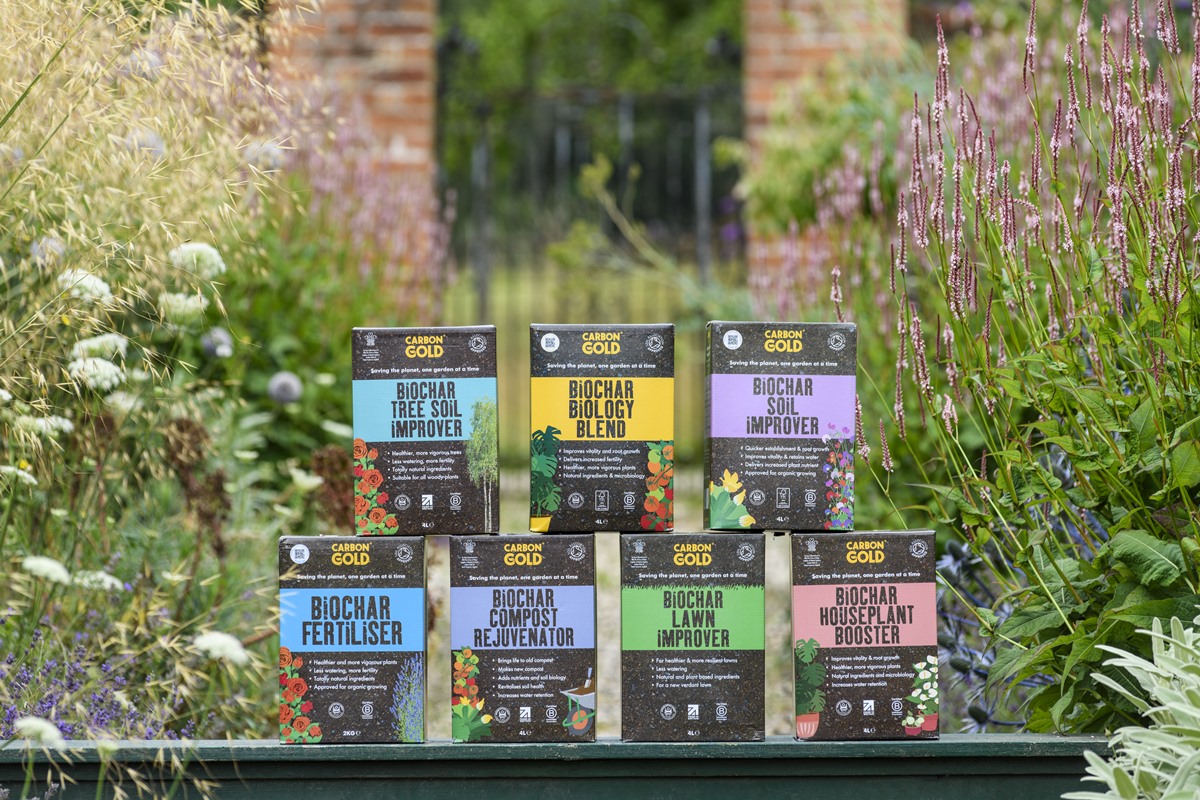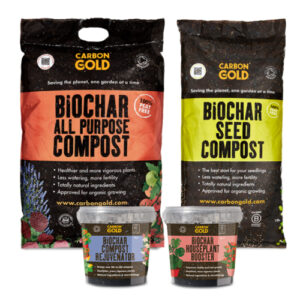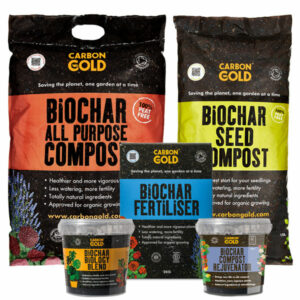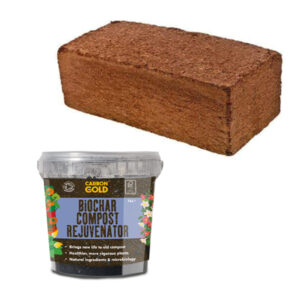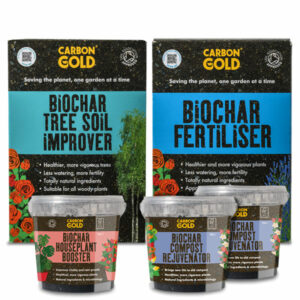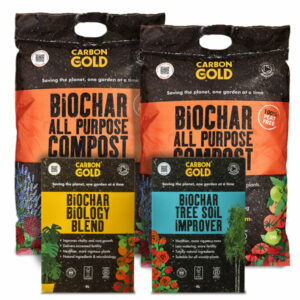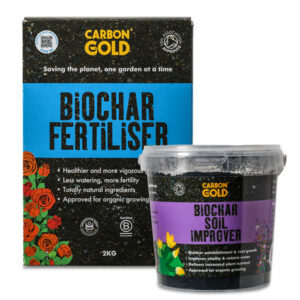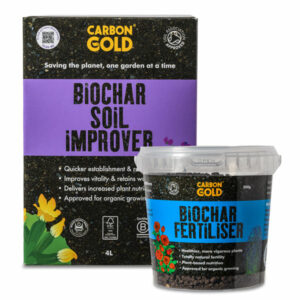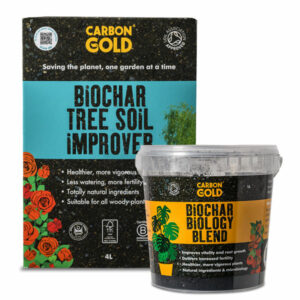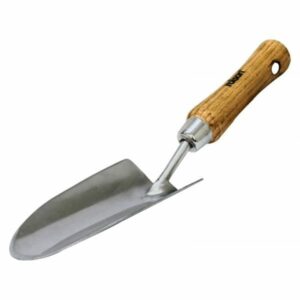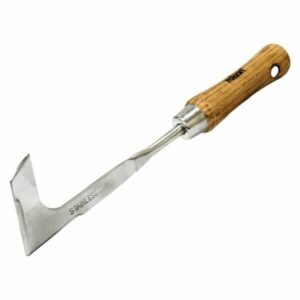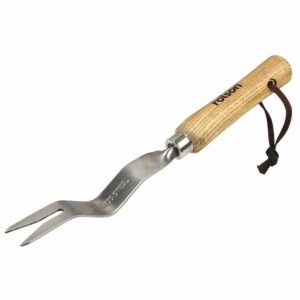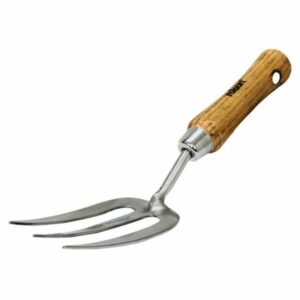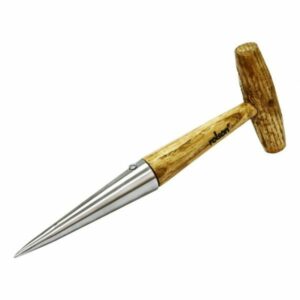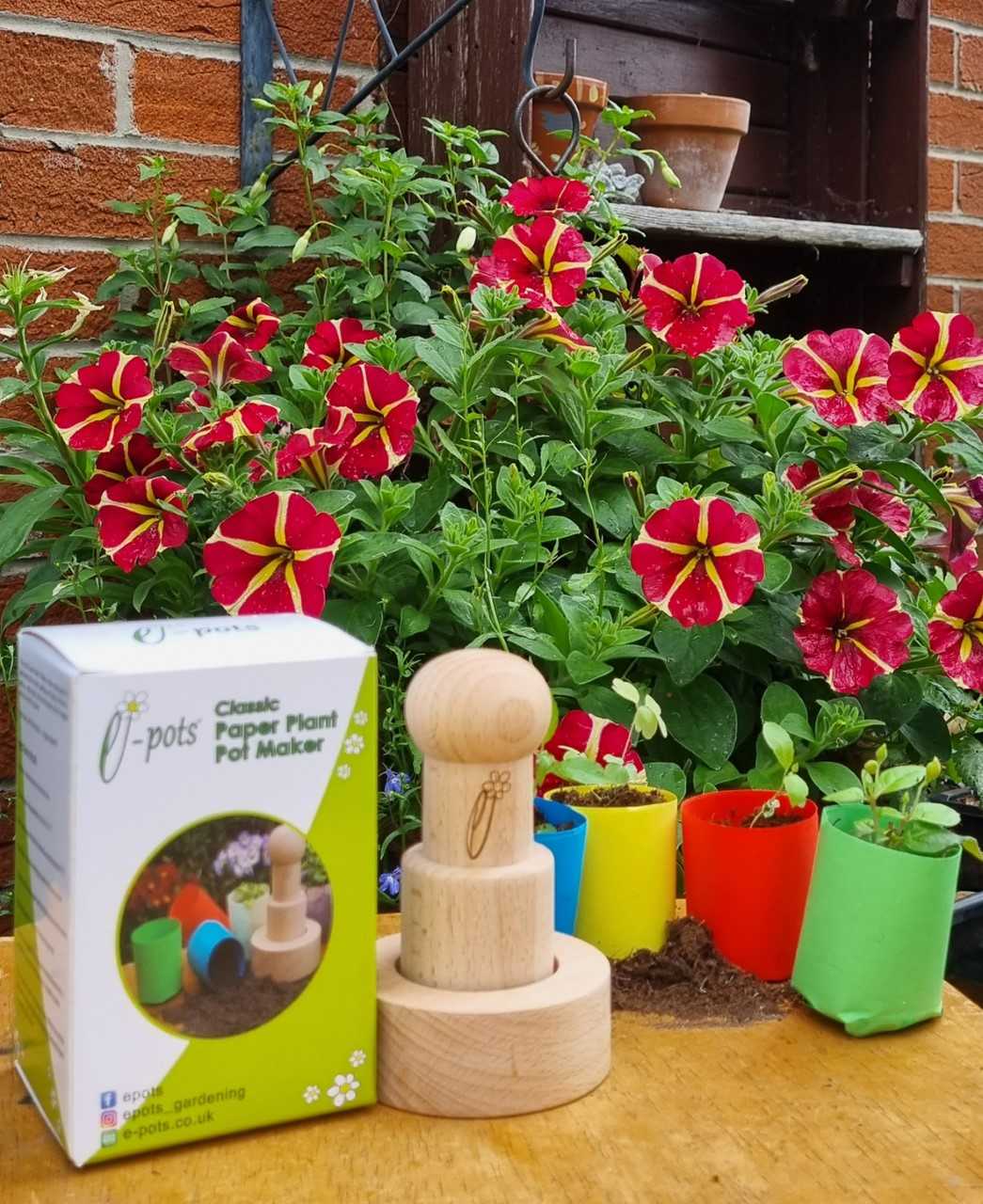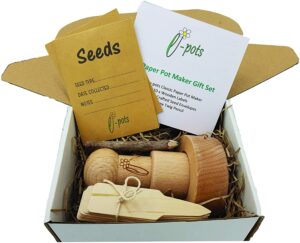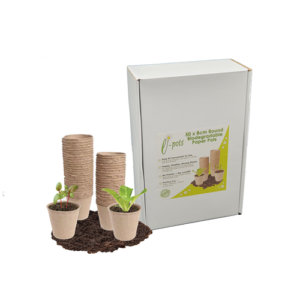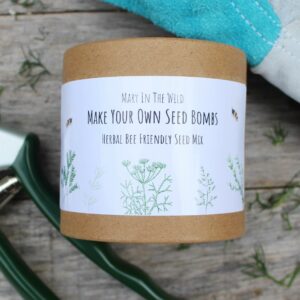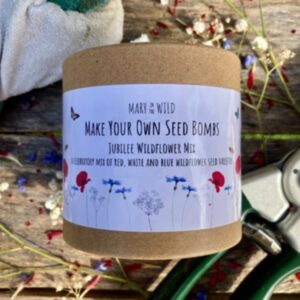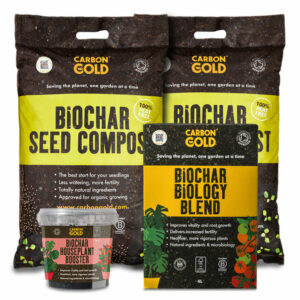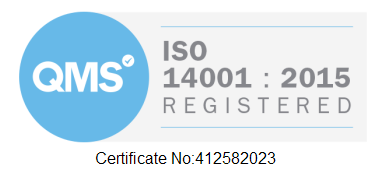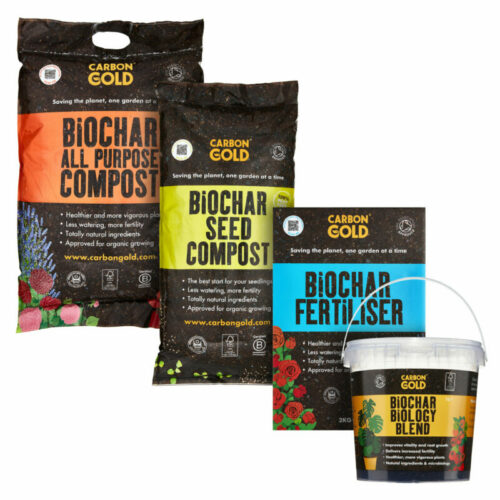How to improve my soil?

Whether you're a gardener who's looking to improve your soil or a professional trying to find the best way to use biochar, you'll want to read on. In this post, we'll explain how biochar can help improve your soil and offer some tips on how to use it. So, whether you're a beginner or an expert, keep reading for all the information you need on biochar!
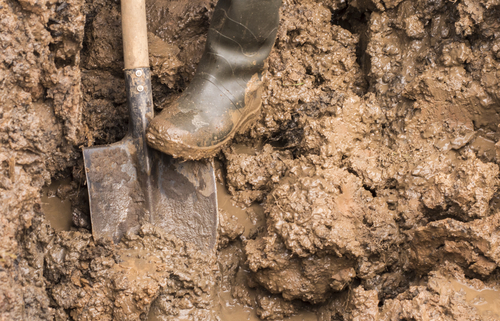
How do I improve clay soil?
Clay soil may have its drawbacks, but it also offers some major benefits. Not only is it rich in nutrients like calcium, potassium, and magnesium, it can also be improved with just a little bit of effort. Adding Carbon Gold Biochar Soil Improver, enriched charcoal for your garden with specially formulated natural biology mix for soil improvement, can help de-compact clay soil and improve drainage and aeration. This not only leads to stronger root growth and easier establishment for plants, it’s also environmentally friendly and approved by the Soil Association. So don’t be discouraged if your garden has clay soil – with a bit of work and the right materials, you can transform it into a healthy and vibrant growing space.
Biochar can help to loosen and aerate the soil, as well as improve drainage. This can be especially helpful in areas with high rainfall or where irrigation is necessary. Adding biochar to clay soils can also help to increase fertility by providing a home for beneficial microbes. These microbes can help to break down organic matter, making nutrients more available to plants.
In addition to improving soil quality, our enriched biochar can also help to increase yields and improve plant health. Plants grown in biochar-amended soil are more resistant to pests and diseases. Biochar can also help to reduce soil erosion and runoff and can even remove toxins from the soil.
By adding Biochar Soil Improver, you will not only de-compact the soil, you will also be improving the drainage and aeration. Allowing the roots of plants to gain an increased supply of natural biology, and helping establishment in the soil and good root growth.
How do I improve sandy soil?
Sandy soils are essentially made up of tiny little rocks, they are low in nutrient and often acidic in nature.
Adding biochar and additional organic matter the soil will hold the moisture and nutrients around your plants roots.
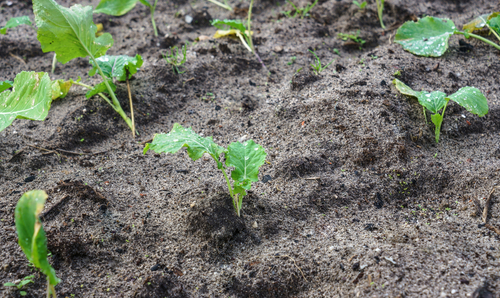
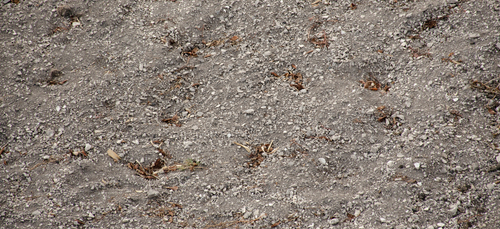
How to improve chalky soils
Chalky soils by definition comprise mainly of calcium carbonate and dries out quickly. This type of soil can cause nutrient deficiencies in plants, especially iron and manganese.
Enriched biochar products benefit chalky soil as it retains moisture and creates a refugia for natural biology.
Improving silty soils
Silt soils are fertile and moisture retentive, so biochar will aid by decompacting the soil.
This type of soil is prone to water and wind erosion if left exposed, so improving the root development of your plants will make the ground less prone to washing away. By adding enriched biochar products like our Improver range as well as additional organic matter, it will allow the silt to bind together into a more stable environment.
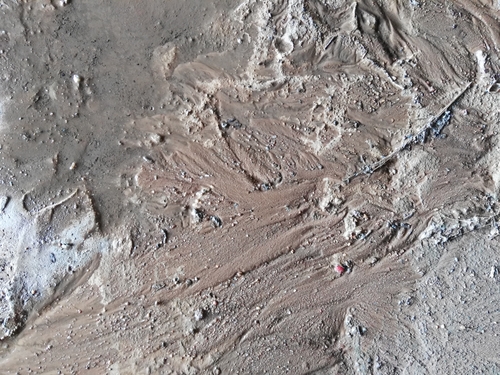
How does biochar effect soil conditions?
Read our review about all the science around how Biochar’s effect on soil conditions. There are also many interesting articles in our Guides and Information section around how to use biochar in your garden.
Biochar products to enhance every garden
£5 - £50 Gift Vouchers
Are your friends and family keen or budding organic gardeners or want to try eco-conscious…
Biochar Tree Care Bundle
Are you planting new trees or wanting to give your existing trees a boost? Scientifically…
Biochar All Purpose Compost
What makes Carbon Gold Biochar All Purpose Compost so impressive is that its organic and…
your Biochar
your Biochar
your Biochar
£9.99
Biochar Outdoor Planting Bundle
An all-round eco-gardening bundle containing all of our main products with 10% OFF and FREE…
Biochar Houseplant Booster
Are your houseplants looking a bit tired, and in need of some love? Our Houseplant…
your Biochar
your Biochar
£9.99
Biochar Essentials Bundle
This Biochar Essentials Bundle is the perfect starter pack, containing our Biochar All Purpose…
3 Tub Pick and Mix Tub Bundle
Easy, convenient and flexible; our Pick & Mix bundles are designed to give you the…
£29.97
Biochar Compost Rejuvenator
Our remarkable compost additive allows you to recycle & reuse your existing compost or grow…
your Biochar
your Biochar
£9.99
Tree Fertiliser
Carbon Gold's 10kg Biochar Tree Fertiliser is a premium, environmentally friendly solution designed to boost…
Biochar Tree Soil Improver
Carbon Gold Biochar Tree Soil Improver is ideal for transplanting or revitalising new and established…
your Biochar
your Biochar
your Biochar
£9.99
Biochar Lawn Improver
Unlock the path to the lawn of your dreams with Carbon Gold's Biochar Lawn Improver,…
your Biochar
your Biochar
your Biochar
£19.99
Biochar Soil Improver
Looking for a soil additive that will promote root development, improve soil structure and help…
your Biochar
your Biochar
your Biochar
£9.99
Spring Planting Bundle
Our Spring Planting Bundle give you everything you need to reinvigorate your old compost, boost…
Biochar Fertiliser
Using Carbon Gold Biochar Fertiliser pellets will give you superb results with no chemical or…
your Biochar
your Biochar
your Biochar
£19.99
Biochar Biology Blend
Unearth the professional grower's best-kept secret – Biochar Biology Blend, a powerhouse formulation that was…
your Biochar
your Biochar
£9.99
Biochar Allotment Bundle
Are you an allotmenteer? Are you new to gardening? Do you want to revitalise the…
4 Tub Pick and Mix Bundle
Easy, convenient and flexible; our Pick & Mix bundles are designed to give you the…
£39.96
6 Tub Pick and Mix Bundle
Dive into a world of simplicity, convenience, and flexibility with our Pick & Mix 6…
£59.94
750kg Biochar
The progression of biochar as a Negative Emission Technology and Nature Based Solution has been…
Biochar Seed Compost
Enhance your seed cultivation experience with Carbon Gold's Biochar Seed Compost. This coir-based compost is…
your Biochar
your Biochar
your Biochar
£9.99
1000L/450kg Biochar Soil Improver
Our pre-inoculated Biochar Soil Improver is ready to go straight in the ground with the…
1000L/425kg Biochar Lawn Improver
Carbon Gold Biochar Lawn Improver is perfect whether you are planning to give your existing…
1000L/450kg Biochar Tree Soil Improver
The most cost effective way of bulk buying our Biochar Tree Soil Improver in the…
10L Biochar Peat Free Compost Pick and Mix
Looking for a compost that is organic and 100% peat free? Carbon Gold Biochar All…
£59.94
20L Biochar Compost Pick and Mix
Looking for a compost that is organic and 100% peat free? Why not try our…
£38.97
4 Box Pick and Mix Bundle
Elevate your garden's potential and contribute to a healthier planet with Carbon Gold's ground breaking…
£79.96
6 Box Pick and Mix Bundle
Unleash the transformative potential of Carbon Gold's products to instigate profound, long-lasting changes in your…
£119.94
2 Box Pick and Mix Soil Improvement Bundle
Embarking on a journey of soil improvement is the simplest way to nurture your garden's…
£39.98
The Climate Change Garden
It's no longer gardening as usual. Already, we are seeing changes to our climate -…
Organic Planting Bundle
If you're serious about your gardening, then you know that healthy soil is the key…
Climate Friendly Gardening Bundle
Carbon Gold Biochar Climate Friendly Bundle is the perfect starter pack for gardener looking to…
Make your own Peat Free Compost Bundle
Concerned about paying to transport water that is in compost and removing peat compost from…
Garden & Tree Restoration Bundle
Are you looking at rejuvenating your garden and trees without having to replace your existing…
Tree Planting Bundle
Are you doing tree planting in your garden or allotment? There is scientific evidence that…
Fertiliser and Soil Improver Bundle
Have you ever heard of biochar? It's a soil improver that's made from burning organic…
Natural Soil Improvement Bundle
Our Natural Soil Improvement Bundle consists of two of the original products in our range.…
2 Tub Pick and Mix Organic Soil Amendment Bundle
Looking for an easy, cost-effective way to improve your soil's health and vitality? Look no…
£19.98
Tree Soil Bundle
Are you looking for a solution to improve the health of your trees and reduce…
Stainless Steel Hand Trowel with Ash Handle
Introducing the Rolson Stainless Steel Hand Trowel with Ash Handle CDU, the perfect tool for…
Stainless Steel Hand Weeder Knife Style Ash Handle
A Stainless Steel Hand Weeder is a gardening tool that features a sharp, stainless steel…
Stainless Steel Hand Weeder - Tongue Type
Introducing the Rolson Stainless Steel Hand Weeder Tongue Type with leather strap, the perfect tool…
Rolson Stainless Steel Hand Fork with Ash Handle
Rolson Stainless Steel Hand Fork with Ash Handle are now available directly from Carbon Gold…
Stainless Steel Hand Dibber with Ash Handle
This hand dibber is made from high-quality stainless steel, ensuring that it is durable, rust-resistant,…
Wooden Paper Pot Maker
This is the classic tool for eco-gardeners.Get ready to take your gardening game to the…
Paper Pot Maker and wooden tool set
The ultimate gift for the green thumbed friend or family member in your life! Our…
Pot Making Gift Set
Are you looking for the perfect sustainable gift? Look no further than the Wooden Pot…
50 x Biodegradable 8cm pots
Looking for an easy and eco-friendly way to plant your seeds? This pack of 50…
Make Your Own Butterfly Friendly Seed Bombs Kit
Grow your own patch of bee friendly wildflowers with our Make Your Own Seed Bombs…
Make Your Own Herbal Bee Seed Bombs Kit
Grow your own patch of bee friendly herbs with our DIY seed bomb kit. Our…
Coronation Wildflower Seed Kit
Grow your own patch of butterfly friendly red, white and blue wildflowers with our DIY…
Make Your Own Bee And Butterfly Friendly Seed Bombs Kit
Grow your own patch of bee and butterfly friendly wildflowers with our Make Your Own…
Organic Gardener's Seed Growing Trio
Introducing the Organic Gardener's Trio - our bundle of sustainable and eco-friendly products for your…

